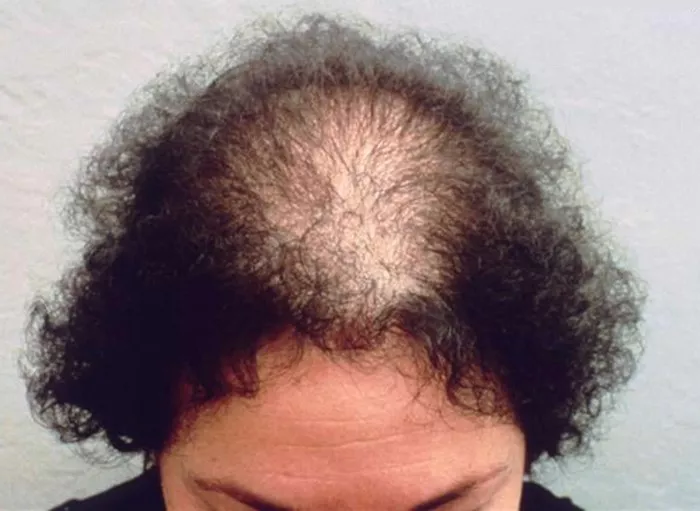Alopecia, a condition characterized by hair loss, can be emotionally distressing on its own. However, when accompanied by itching, it can become even more uncomfortable. Itchy scalp due to alopecia is a common concern among those dealing with this condition. In this comprehensive guide, we will explore various strategies to help you alleviate and stop alopecia itching, ensuring a more comfortable and confident life.
What is itching caused by hair loss?
Itching associated with hair loss, known as alopecia itching, is primarily caused by several factors. Inflammation and scalp irritation are common culprits, as hair follicles can become inflamed, triggering discomfort and itching. Dryness of the scalp due to insufficient moisture can also lead to itching and flakiness. Additionally, allergies or sensitivities to hair products or environmental factors may exacerbate the itching sensation. To alleviate this discomfort, it’s essential to address these underlying causes through treatments such as topical steroids, anti-inflammatory shampoos, moisturizing the scalp, allergy management, and stress reduction techniques. Consulting a dermatologist for personalized guidance is advisable for severe cases of itching associated with hair loss.
What are the causes of itching caused by hair loss?
Alopecia itching can be caused by various factors, and comprehending these triggers is crucial for effective relief. Let’s delve into the primary culprits behind alopecia-related itching:
a. Inflammation and Scalp Irritation:
One of the leading causes of alopecia itching is inflammation and irritation of the scalp. When hair follicles become inflamed, it can lead to discomfort and itching.
b. Dry Scalp:
A lack of moisture in the scalp can exacerbate itching. Dryness can lead to flakiness and increased irritation.
c. Allergies and Sensitivities:
Allergic reactions to hair products or environmental factors can also contribute to itching in individuals with alopecia.
Treating Inflammation and Scalp Irritation
Now that we’ve identified the triggers, let’s explore how to address them effectively:
a. Topical Steroids:
Your dermatologist may recommend topical steroids to reduce inflammation and itching. These can provide quick relief when used as directed.
b. Anti-Inflammatory Shampoos:
Look for shampoos containing ingredients like salicylic acid or coal tar, which can help calm scalp inflammation.
c. Gentle Scalp Massage:
Massaging your scalp gently with your fingertips can promote blood circulation and reduce inflammation.
Moisturizing the Scalp
Proper hydration is essential for an itchy scalp. Here are some steps to maintain optimal moisture:
a. Use a Humidifier:
Especially during dry seasons, a humidifier in your bedroom can help maintain moisture in the air, preventing scalp dryness.
b. Conditioning Treatments:
Use a deep conditioning treatment or hair mask to keep your scalp and hair hydrated. Look for products with natural ingredients like aloe vera or coconut oil.
Allergy Management
For those who suspect allergies are the cause of their alopecia itching, consider these steps:
a. Patch Testing:
Undergo patch testing to identify any specific allergies to hair products or other substances. Once identified, avoid these allergens.
b. Switch to Hypoallergenic Products:
Opt for hair care products specifically designed for sensitive scalps and labeled as hypoallergenic.
Stress Reduction
Stress is known to exacerbate itching and hair loss in individuals with alopecia. Here’s how to manage it:
a. Mindfulness and Meditation:
Engage in mindfulness exercises and meditation to reduce stress levels, which can help alleviate itching.
b. Exercise:
Regular physical activity is an effective stress reliever. Aim for at least 30 minutes of exercise most days of the week.
Consult a Dermatologist
When all else fails, consulting a dermatologist is crucial for comprehensive alopecia itching management. They can provide personalized advice and treatments tailored to your specific condition.
See Also: What Saw Palmetto Is Best for Hair Loss: What You Need To Know
In conclusion
Alopecia itching can be both frustrating and uncomfortable, but with the right strategies, relief is attainable. By addressing inflammation, moisturizing your scalp, managing allergies, reducing stress, and seeking professional guidance, you can significantly improve your quality of life while dealing with alopecia-related itching. Remember that patience and consistency in following these strategies are key to finding relief.


